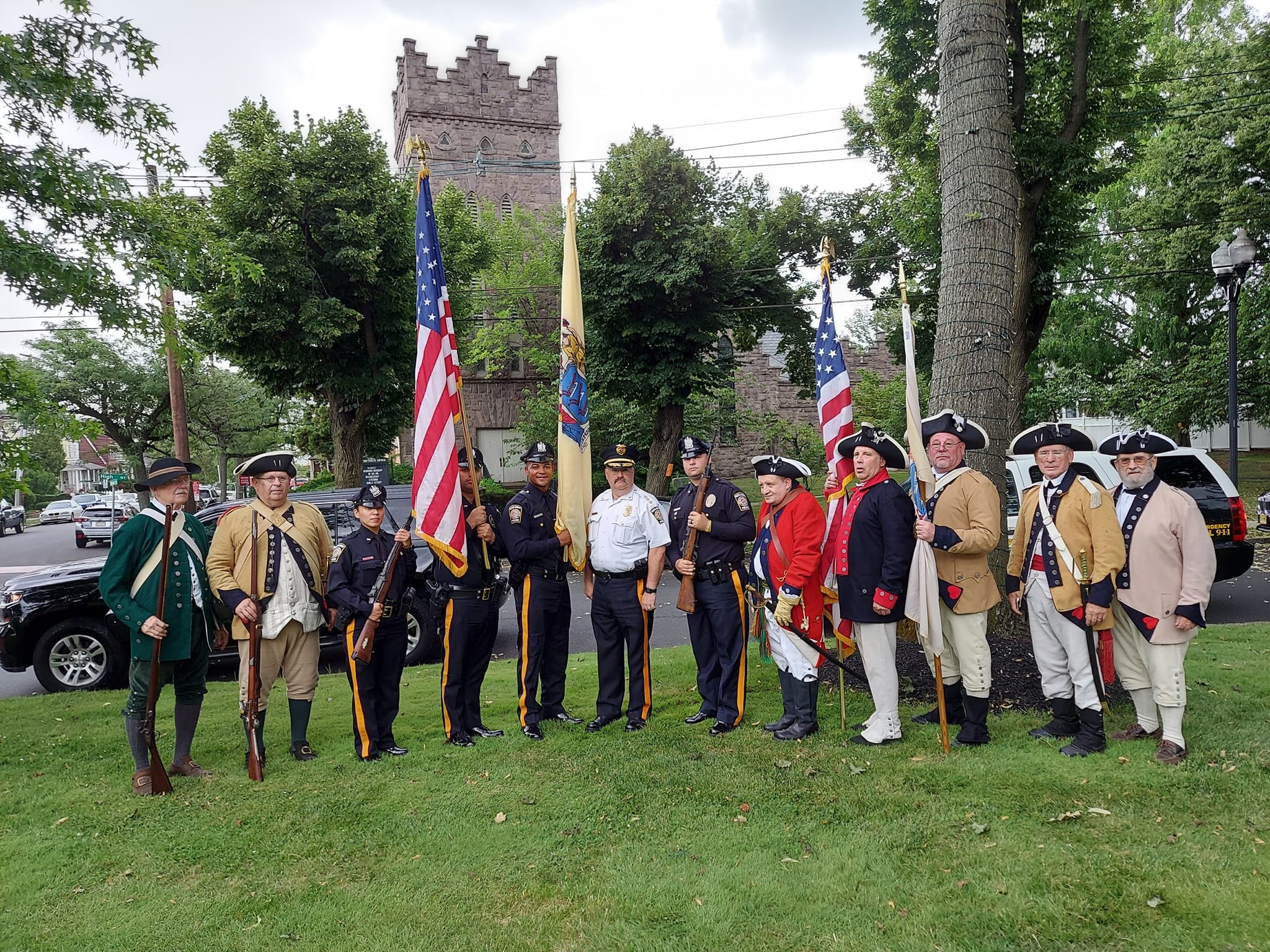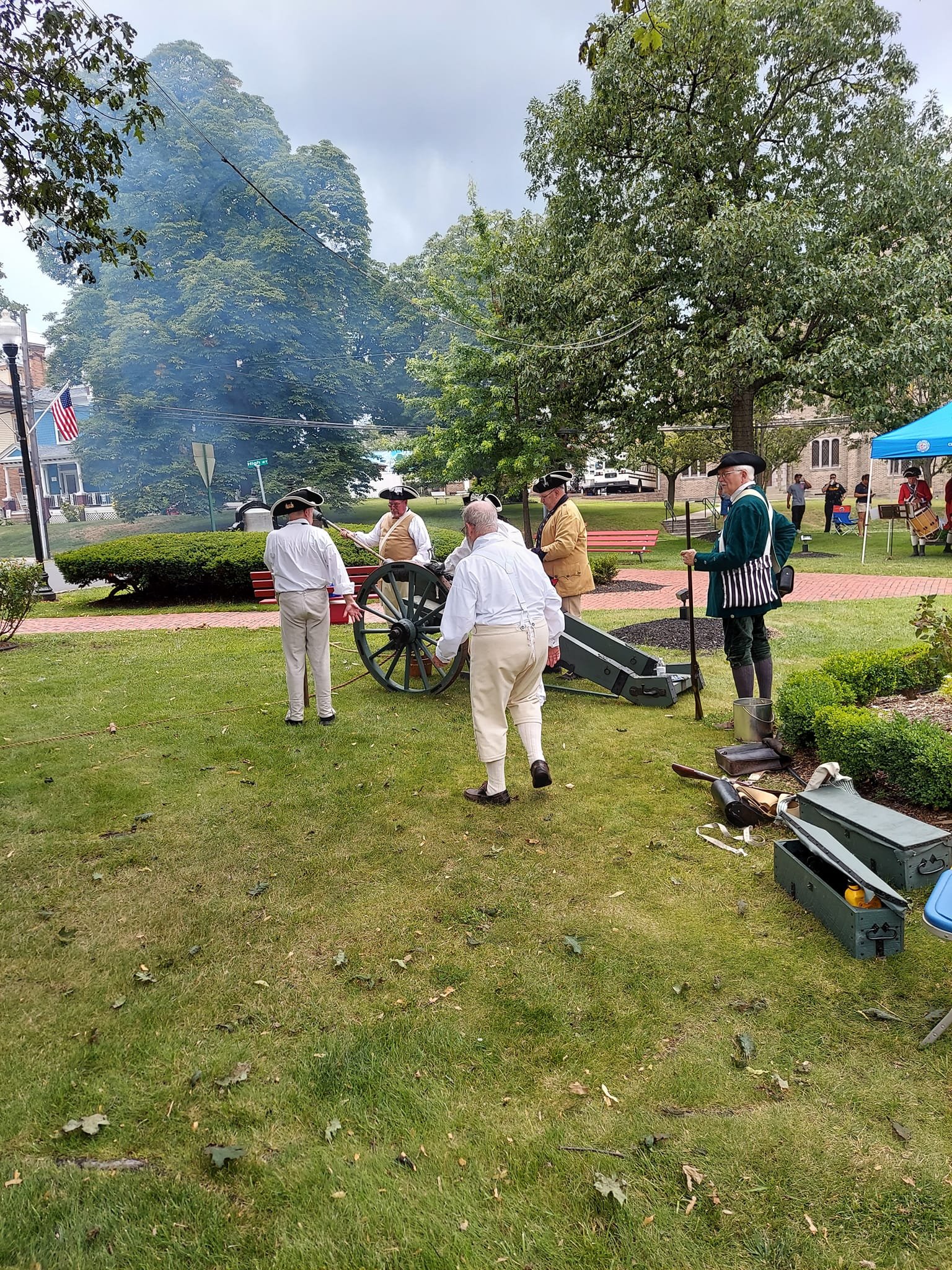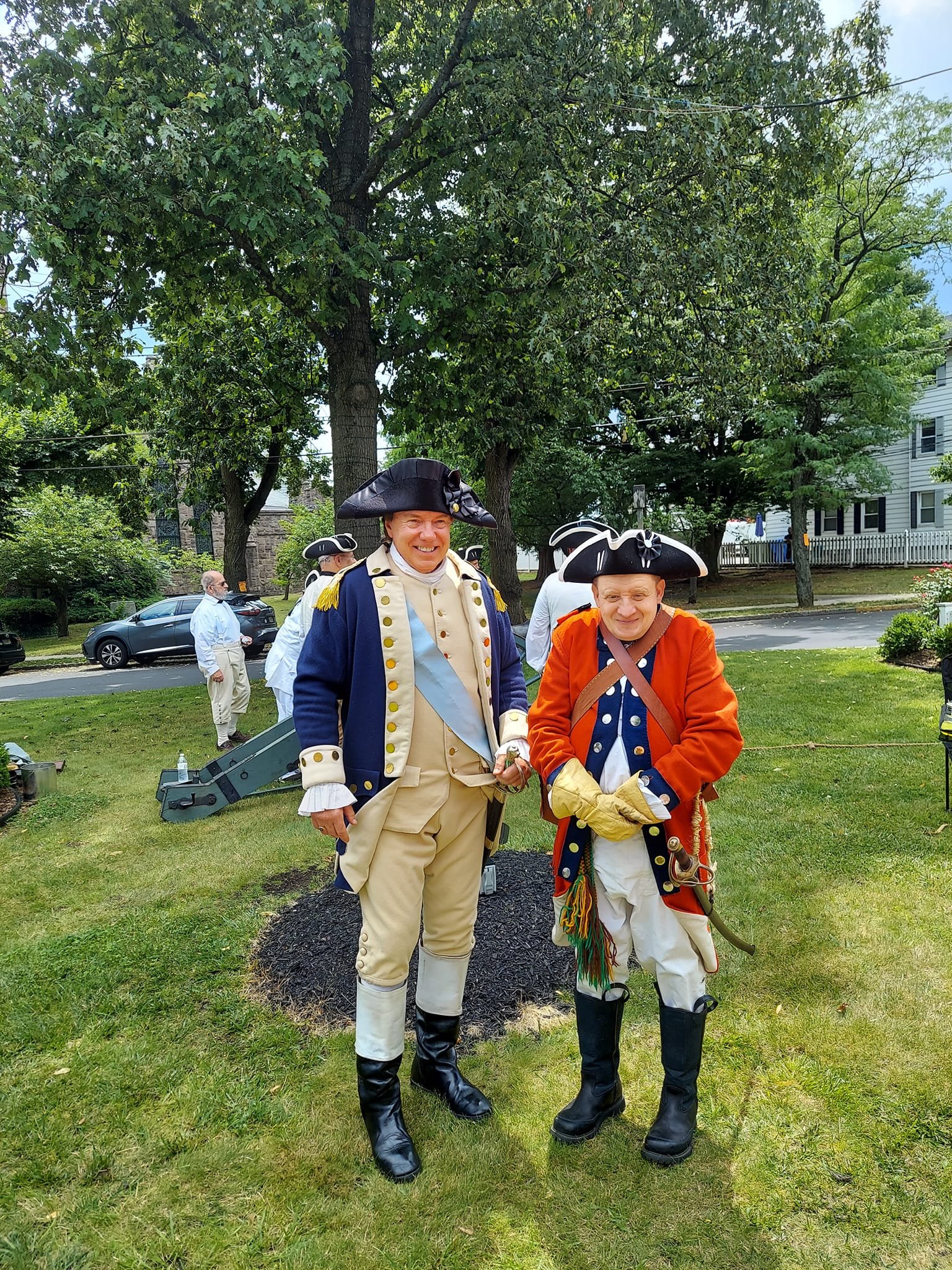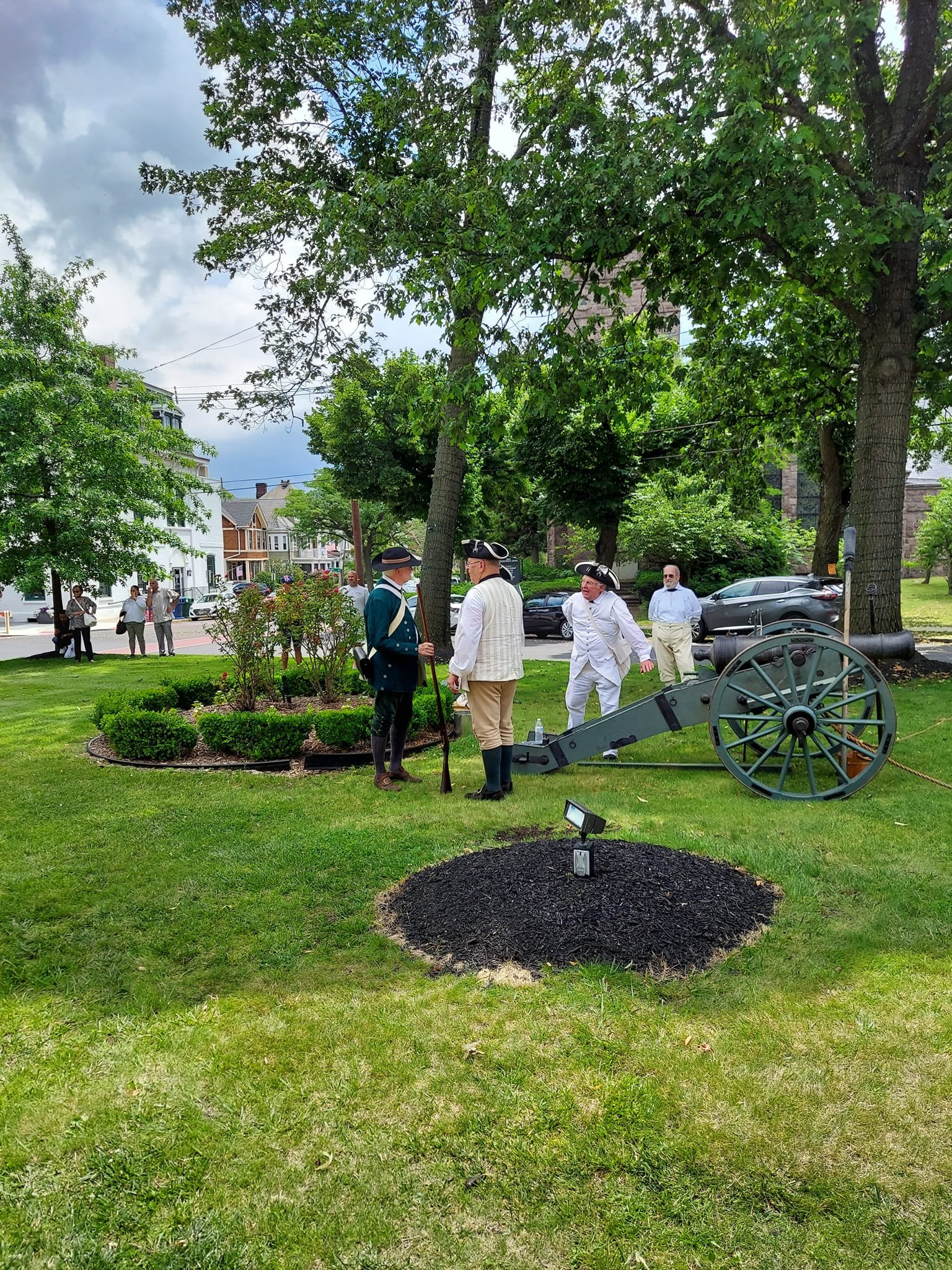July 4th Celebration in the Provincial Capital of East Jersey
Elizabeth (then known as Elizabethtown) was designated in 1668 as the first capital of New Jersey. In 1686, Perth Amboy was designated as the capital of East Jersey, while Burlington was the capital of West Jersey. After the two were united as a royal colony in 1702, the two cities alternated as the capital of the Province of New Jersey until November 1790, when Trenton was designated as the unified state capital, chosen based on its location midway between New York City and Philadelphia.
A few of the buildings from this early period can still be seen today. Most notably, the Proprietary House, the home of William Franklin, the last Royal Governor of New Jersey and estranged son of Benjamin Franklin, still stands in the city's waterfront area. Architect John Edward Pryor was hired in 1761 to design and construct the building, completed in September 1764, years late and over budget. Franklin preferred his alternate home in Burlington. Franklin finally moved in 1774 into the Proprietary House. Franklin's father, Ben, tried unsuccessfully to convince his son to support the Colonial cause. William Franklin was arrested and detained at Proprietary House in 1776 until he was tried and convicted of treason.
Perth Amboy City Hall was first built as a courthouse for Middlesex County in 1714, having been designated as the county seat the previous year. The building was later used as the home of the East Jersey Provincial Assembly. The building was destroyed by a major fire in 1731 and rebuilt in 1745. Another fire was deliberately set in 1764, forcing a rebuilding completed in 1767. It is the oldest city hall in continuous use in the United States. On November 20, 1789, City Hall was the site where the New Jersey General Assembly met to ratify the Bill of Rights, becoming the first state in the nation to do so.
Market Square, located across from City Hall, is a park that had been an outdoor marketplace during the Colonial era. Market Square includes a replica of the Liberty Bell, a statue of George Washington, and the Bill of Rights Arch, commemorating that New Jersey was the first state to ratify the Bill of Rights.
St. Peter's Church, which held its first service in 1685 and received a royal charter in 1718, has been recognized as the first Episcopal congregation in the state. It’s current building, dating from the 1850s, is surrounded by a graveyard of early inhabitants and displays a collection of stained-glass windows with religious scenes and early depictions of New Jersey receiving her charter and a meeting between William Franklin and his father, Ben.
Content from Wikipedia Photos and video by Chris Sands















